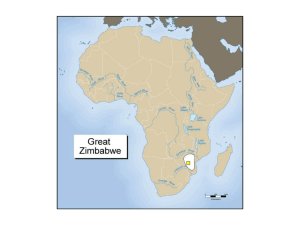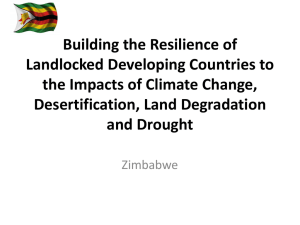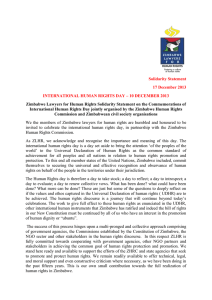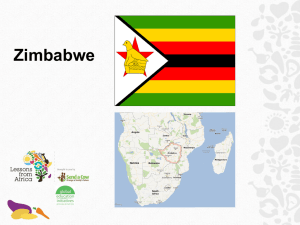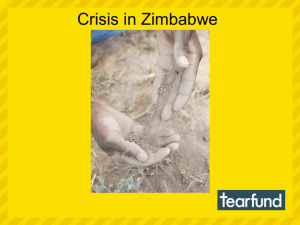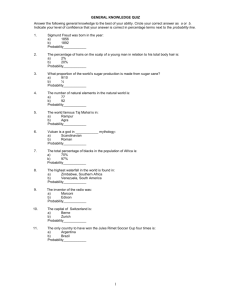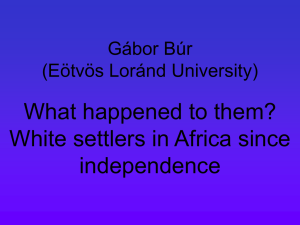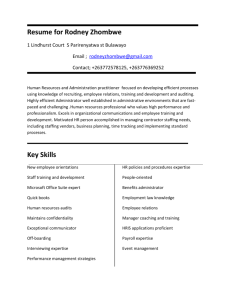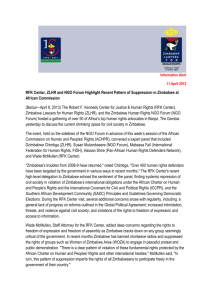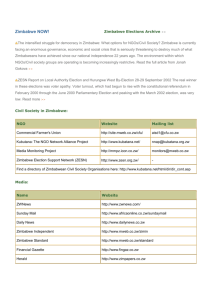Zimbabwe Part 2 land redistribution
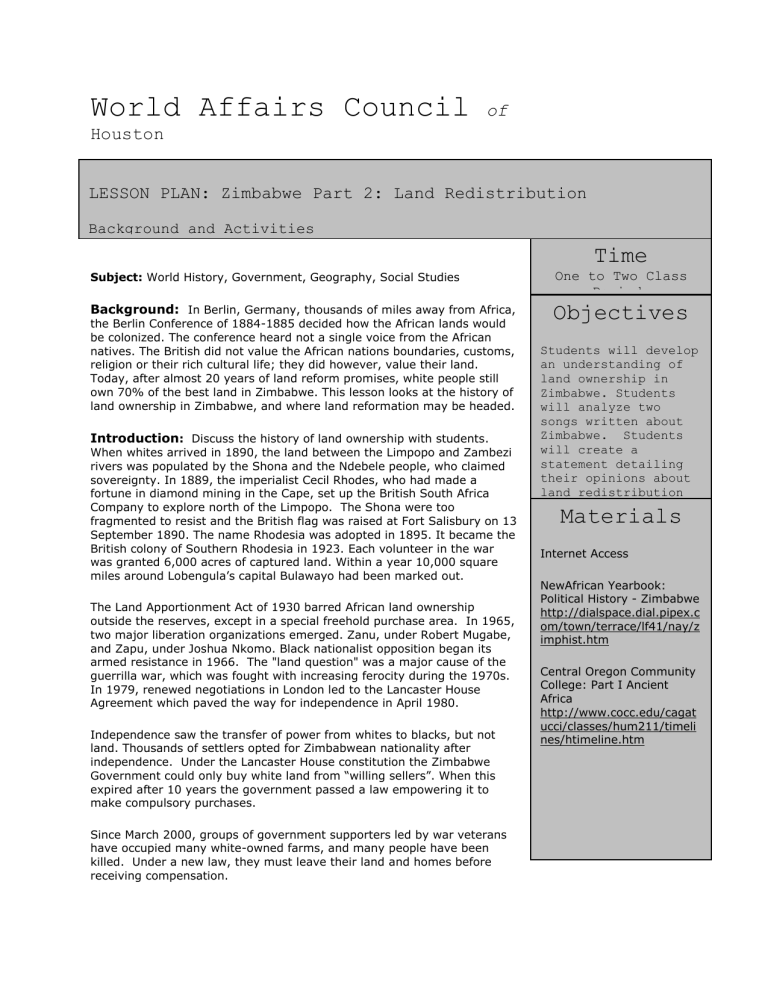
World Affairs Council
of
Houston
LESSON PLAN: Zimbabwe Part 2: Land Redistribution
Background and Activities
Subject: World History, Government, Geography, Social Studies
Background:
In Berlin, Germany, thousands of miles away from Africa, the Berlin Conference of 1884-1885 decided how the African lands would be colonized. The conference heard not a single voice from the African natives. The British did not value the African nations boundaries, customs, religion or their rich cultural life; they did however, value their land.
Today, after almost 20 years of land reform promises, white people still own 70% of the best land in Zimbabwe. This lesson looks at the history of land ownership in Zimbabwe, and where land reformation may be headed.
Introduction
: Discuss the history of land ownership with students.
When whites arrived in 1890, the land between the Limpopo and Zambezi rivers was populated by the Shona and the Ndebele people, who claimed sovereignty. In 1889, the imperialist Cecil Rhodes, who had made a fortune in diamond mining in the Cape, set up the British South Africa
Company to explore north of the Limpopo. The Shona were too fragmented to resist and the British flag was raised at Fort Salisbury on 13
September 1890. The name Rhodesia was adopted in 1895. It became the
British colony of Southern Rhodesia in 1923. Each volunteer in the war was granted 6,000 acres of captured land. Within a year 10,000 square miles around Lobengula’s capital Bulawayo had been marked out.
The Land Apportionment Act of 1930 barred African land ownership outside the reserves, except in a special freehold purchase area. In 1965, two major liberation organizations emerged. Zanu, under Robert Mugabe, and Zapu, under Joshua Nkomo. Black nationalist opposition began its armed resistance in 1966. The "land question" was a major cause of the guerrilla war, which was fought with increasing ferocity during the 1970s.
In 1979, renewed negotiations in London led to the Lancaster House
Agreement which paved the way for independence in April 1980.
Independence saw the transfer of power from whites to blacks, but not land. Thousands of settlers opted for Zimbabwean nationality after independence. Under the Lancaster House constitution the Zimbabwe
Government could only buy white land from “willing sellers”. When this expired after 10 years the government passed a law empowering it to make compulsory purchases.
Students will develop an understanding of land ownership in
Zimbabwe. Students will analyze two songs written about
Zimbabwe. Students will create a statement detailing their opinions about land redistribution in Zimbabwe.
Materials
Internet Access
NewAfrican Yearbook:
Political History - Zimbabwe http://dialspace.dial.pipex.c
om/town/terrace/lf41/nay/z imphist.htm
Time
One to Two Class
Periods
Objectives
Central Oregon Community
College: Part I Ancient
Africa http://www.cocc.edu/cagat ucci/classes/hum211/timeli nes/htimeline.htm
Since March 2000, groups of government supporters led by war veterans have occupied many white-owned farms, and many people have been killed. Under a new law, they must leave their land and homes before receiving compensation.
Activity 1
After students have exhibited an understanding of the history of land ownership in Zimbabwe, copy and pass out to the students the following songs. The first song was written by Clem Tholett, a white
Rhodesian.
"Rhodesians Never Die"
We'll preserve this nation
For our Children's children
Once you're Rhodesian no other land will do,
We will stand tall in the sunshine
With truth on our side,
And if we have to go it alone,
We'll go it alone with pride.
We're all Rhodesians
And we'll fight through thick and thin
We'll keep our land a free land
Stop the enemy coming in
We'll keep them north of the Zambezi
Till that river's running dry
And this mighty land will prosper
For Rhodesians never die.
The following song was sung by the Guerrillas.
"Chimurenga Song"
Hark!
It Thunders!
Smith! Our brothers and sisters
Are living in the forests
Because they are protecting our land
Smith! Our brothers and sisters
Are living in the forests
Because they are fighting for our country.
They would have wanted
To sleep under a roof
They would have wanted
To till their lands
But for the love of our land
But for the love of our land
They are fighting for our land
They are fighting for our land.
(Smith refers to Ian Douglas Smith who controlled Rhodesian government for 15 years. Smith was quoted as saying, "I cannot see in my lifetime that the Africans will be sufficiently mature and reasonable to take over.")
It should be obvious from these songs that both groups of people feel entitled to certain lands in
Zimbabwe.
Generate a list of comments, questions, and feelings that the songs created in the students.
Activity 2
Blacks continue to press their ancestral rights to the land. White farmland holders are resistant to letting go of their land titles. Tell the class that they are going to decide the fate of land distribution in
Zimbabwe.
Divide the class into three groups. (Pro land redistribution people, anti land redistribution people, and a panel that will hear the concerns of both groups)
The two land redistribution groups will create a statement voicing their opinions on the subject. A short question and answer period will follow each group's reading of their statement.
The two groups will read their statements to the panel. The panel will hear both sides of the argument, and return to the class with a formal written decision on the matter.
Assessment:
Students will be evaluated on the quality of their written report, and their ability to answer questions following the presentation of their statement.

